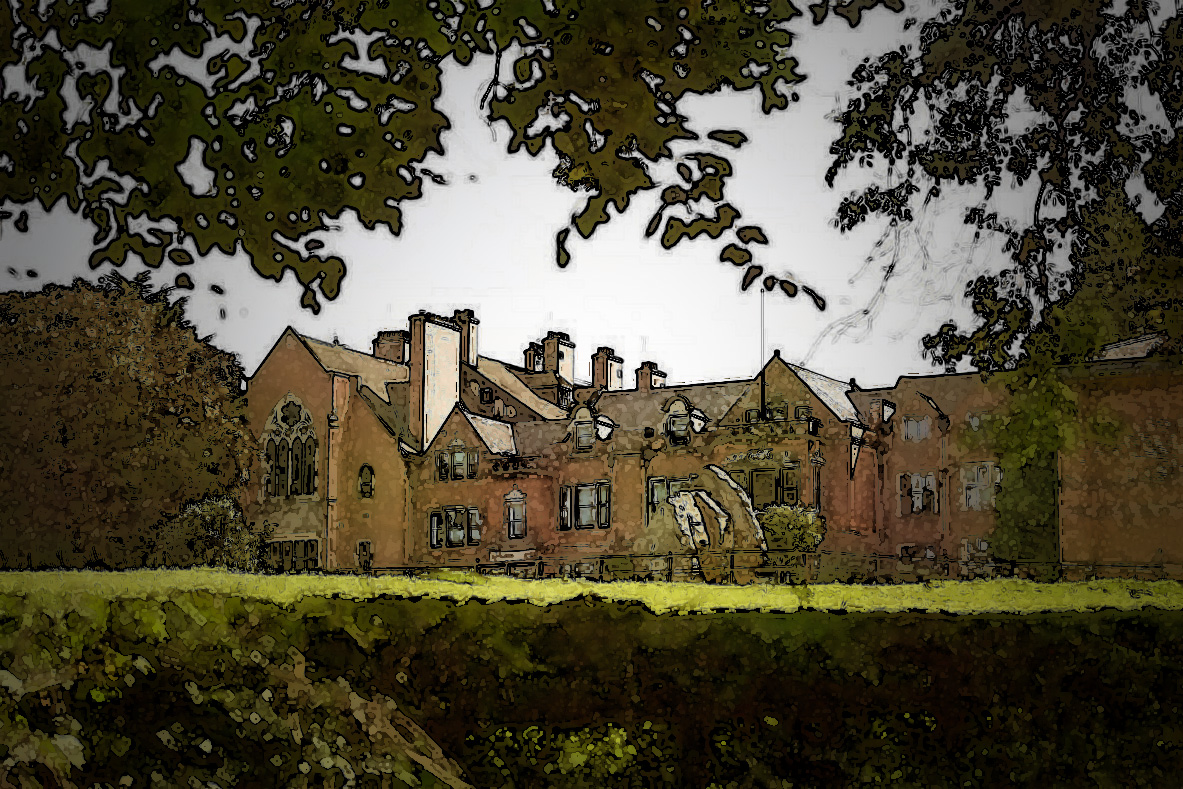
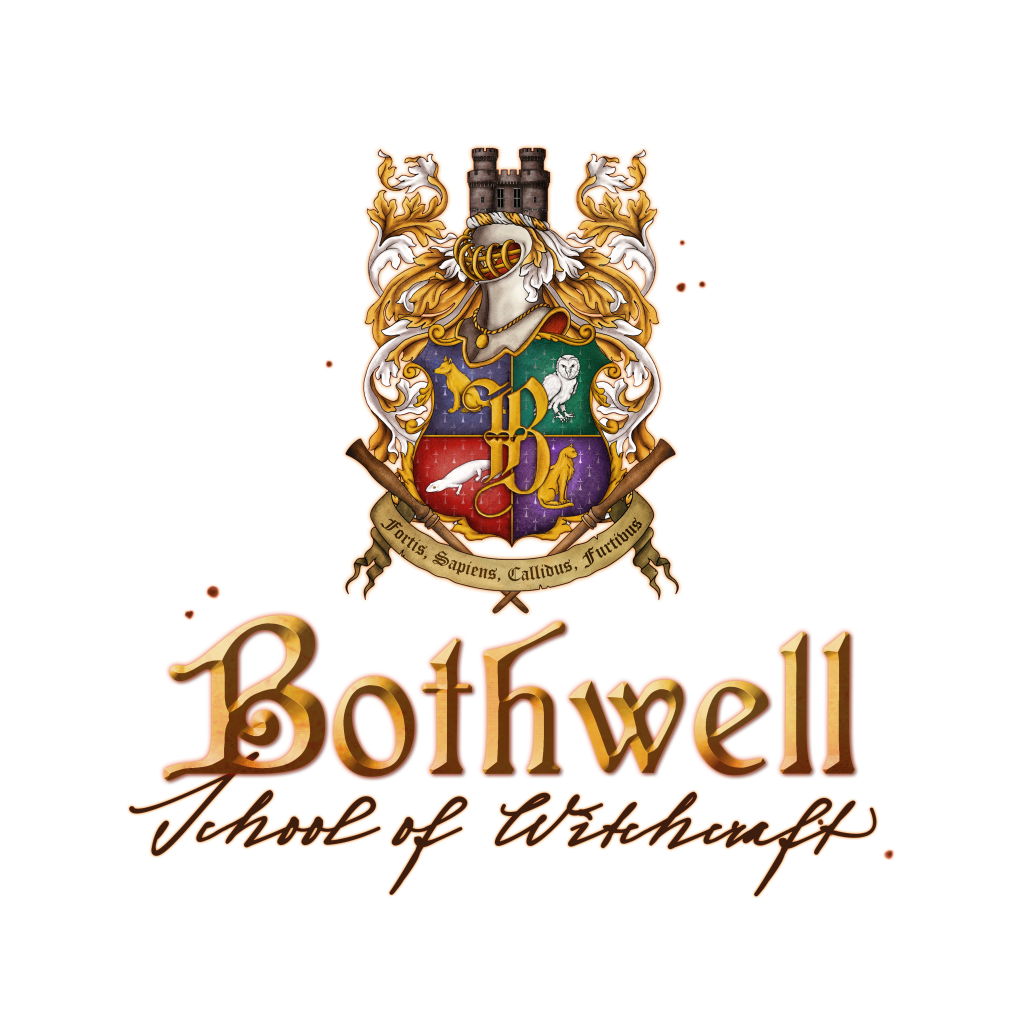
Bothwell School of Witchcraft is the UK’s largest magic school role-playing event. Located in an authentic British boarding school, you’ll easily be able to become a part of the school of magic you always dreamed of attending! Take part in magical lessons as a student or professor, explore the expansive grounds, be sorted into one for the four school houses, and make lifelong friendships.
The Next Event
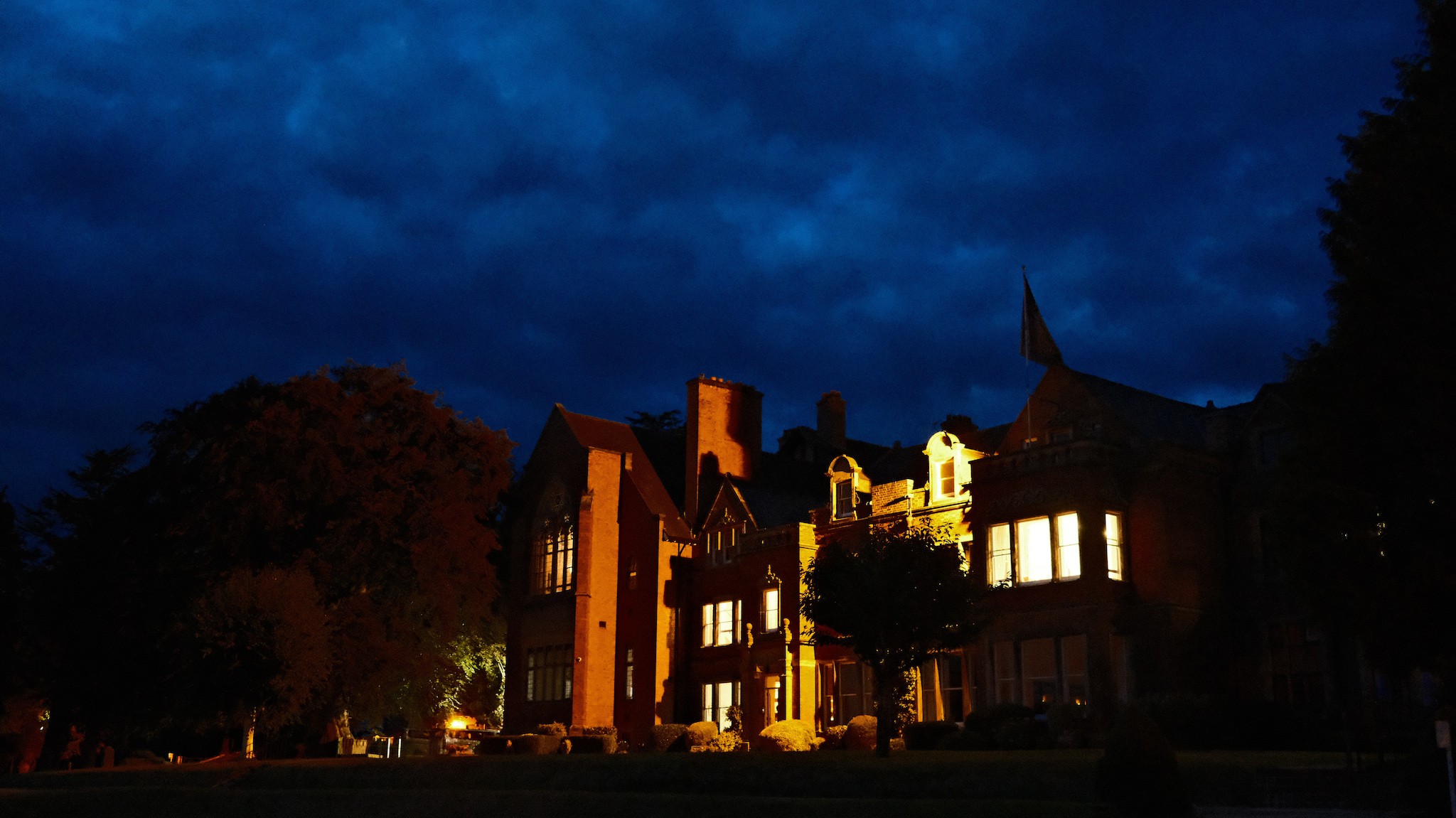
Bothwell School of Witchcraft 8: For the Greater Good
2027
More information to be announced!
The Experience
Bothwell School of Witchcraft is a live action roleplaying game (larp) and sees 108 participants take the roles of the students and faculty of the eponymous school, set in a fictional and original magical universe of ‘Witchards’. Over the course of three days, the larp traditionally follows the first three days of a new school where your character can attend or teach lessons and club activities, study spells and potions, and go on adventures with your friends. Meeting magical creatures in the forest, playing pranks, coming of age, and finding your place in the magical hierarchy… There are many stories to be told, and you decide which ones you want to take part in. The game also ends with a magical ball and the awarding of the Bothwell Sword to the House with the most points!
The larp is for over 18s and is set in a beautiful, authentic boarding school in the heart of the British Midlands, complete with its own chapel, theatre, secret garden, banquet hall, and house common rooms. You will sleep on the schools’ residential bedrooms, and the participation fee includes your bed, all meals, and a returnable tie to complement your costume. There is ample parking available at the school, and there will be mini-bus transport available for those who need it from Rugeley Trent Valley train station to and from the game site.
You can either write your own character for the game, or receive a pre-written character sheet from us if you’d prefer. Each student will belong to one of the four Bothwell Houses and study each of the magical lessons. This gives you plenty of opportunities to find friends, rivals, romances, classmates, and others to have unforgettable experiences with! Each game has its own distinct theme to give collaborative story-telling opportunities and a cohesive vibe to the larp, which we encourage all participants to embrace and draw inspiration from! Ultimately the larp is like playing a sandbox though! Do what you think is fun, play with who you like, and roleplay the scenes and moments in a way that sparks your joy.
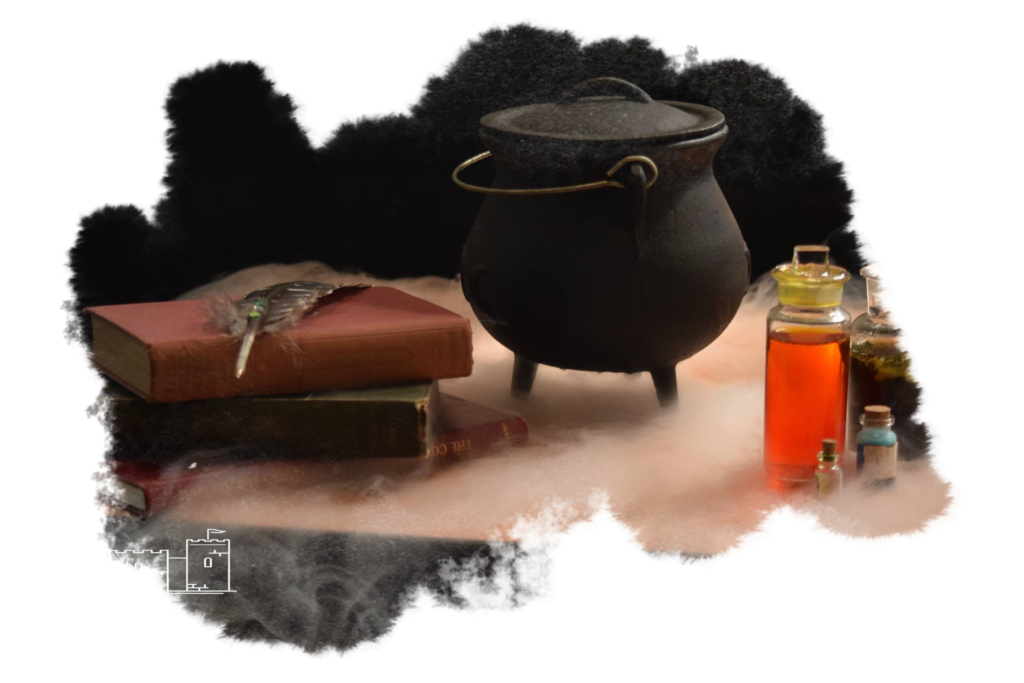
The Houses of Bothwell
The Houses at the Bothwell School of Witchcraft are named for some of the protectors of the school early in its conception. Each a revolutionary within the witcharding world, they defended the castle while it was still a sanctuary for young witchards and helped to fight injustices against their kind.
Though these founders were known for their many great deeds, none of them were perfect! Echoing this, the traits of each house have a fluidity to them. One year Boyeswick might be known for their loyalty, passion and headstrong attitudes, the very next might have a reputation for their adventurousness, bravery and impetuous habits.
The in-game lore for each House has changed from its original conception to be more flavourful, more inclusive, and more flexible. Much of it echoes the original stories but there are fundamental changes, and we are currently in the process of updating the artwork for the larp.
House MacNewthorn
Colours: Crimson, Brass – Familiar: Great Crested Newt
Motto: Furtivus (Clandestine) – Founder: Montague MacNewthorn
Common Traits: Ambitious, Creative, Hardworking, Secretive, Calculated, Manipulative
The charms that disguise the castle are meant to keep out all trespassers, magical or not. The only way to enter the castle grounds was to use a closely guarded secret code. Montague MacNewthorn, however, turned up alone at the gates of the castle, entered freely and made his way directly into the founder of the school, Francis Stewart’s, study. To this day, it is not known how he found the location and penetrated the powerful magic but the many conflicting stories of his origin may hold the answer. Along with the other founders he fought against those who would threaten the sanctuary; however, MacNewthorn held the position of chief spy. Many within the sanctuary didn’t trust Montague. He blended in almost too well with mundanes and his unusually efficient and novel style of spellcasting raised many an eyebrow. Whenever questioned about his true origins, there was always a different story. Though, one common element was a small house by a Scottish Loch…
Members of House MacNewthorn are often known for reliably achieving what is asked of them. More than a few members of the house lead creative clubs within the school and do whatever they can to assure their successes. Unlike those in house Boyeswick, the consequences of a MacNewthorn’s actions are rarely foreseen.
To represent the high ambition, Scottish heritage, and unlockable nature of Montague, the House colours are crimson and brass.
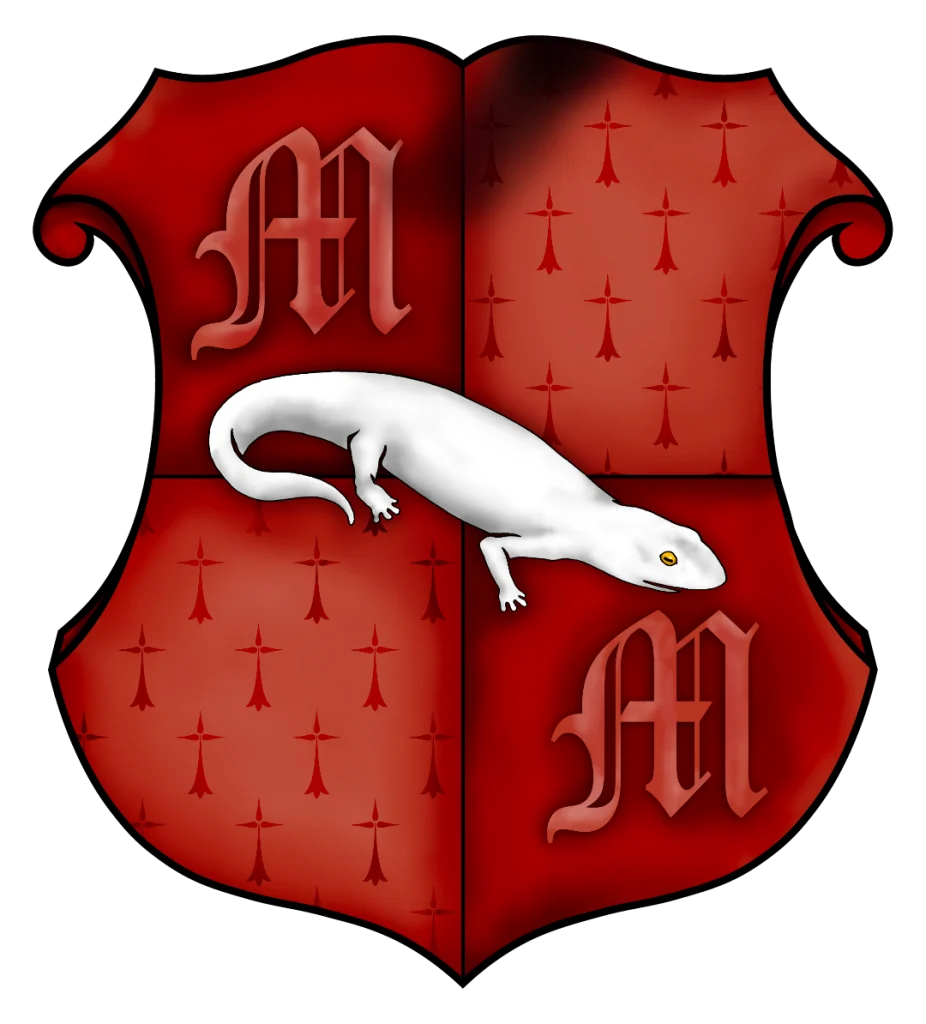
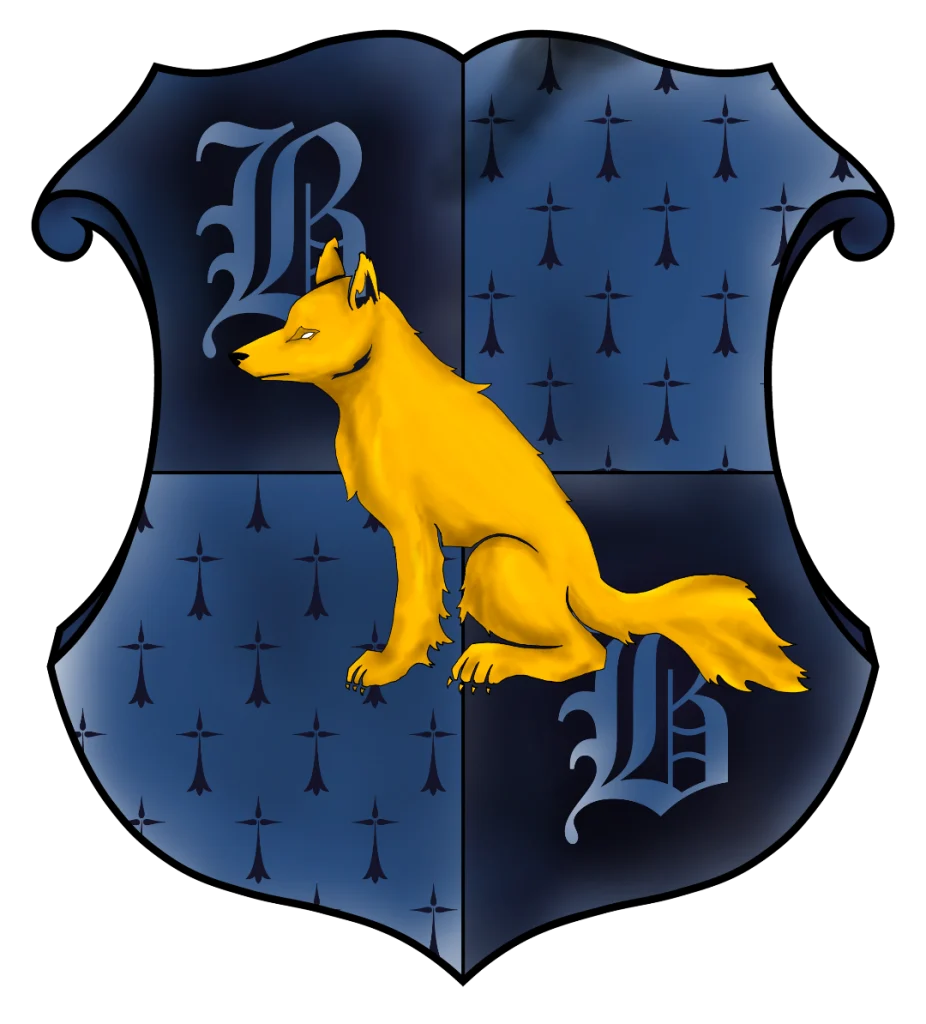
House Boyeswick
Colours: Navy Blue, Steel – Familiar: Irish Wolfhound
Motto: Fortis (Brave) – Founder: Geoffry Boyeswick
Common Traits: Loyal, Brave, Passionate, Adventurous, Headstrong, Impetuous
Hailing from the forests of what is now the modern day Northern Ireland, this house was named for Geoffry Boyeswick, known on the battlefield as simply ‘boye’. More comfortable in the form of an Irish wolfhound, Boyeswick was quick to act against those who threatened the sanctuary. Despite efforts to conceal their talents they became notorious in the stories of witch hunters as a fearsome dog with magical abilities. Fighting more directly on the front line, Boyeswick was an impressive warrior who used the cover of the battlefield to take down the witch hunters along with anyone who got in their way. Though not the most academic of their colleagues, Boyeswick’s connection to magic was as natural as breathing, their instinctual understanding going unchallenged. Some scholars even speculate that Boyeswick was a descendant of some of the Tuatha Dé.
Members of House Boyeswick are chosen for their bravery, loyalty, passion and adventurous spirit. They are fiercely dedicated and will go to great lengths to defend their friends even if they have not thought through the consequences. The colours for House Boyeswick are a deep blue and polished steel, representing their loyalty and fortitude.
House Wisenforth
Colours: Emerald Green, Pearl – Familiar: Barn Owl
Motto: Sapiens (Wise) – Founder: Brianne Wisenforth
Common Traits: Wise, Optimistic, Strategic, Generous, Diplomatic, Fixated
The founder, Brianne Wisenforth, was a much older witch who, before the Bothwell Sanctuary, spent her days in the vast forests of Nottingham as a healer. As Brianne watched the witch trials spread throughout the land, she sought to create an Alliance of British Confluxes in the hopes that, by coming together, witchard-kind could weather this storm together. With little familial reputation in the country, she knew that it would take more than her ideals and magical prowess to convince some of the stubborn traditionalists to agree to come together. Never giving up hope, Wisenforth continued to try. By a stroke of luck, though some may call it destiny, Francis Stewart in the form of a fox just so happened to follow rumours of witches right to a conflux Wisenforth was visiting.
This chance encounter enabled the pair to come together to work towards their common goals – Wisenforth had joined forces with the sanctuary.
Using the form of an owl, Wisenforth gave counsel to the allies of the sanctuary and flew messages between camps. She was a skilled diplomat; often her soothing words would help keep feuding generals on the same side. Her sound reasoning and strategy was crucial in many of the sanctuary’s victories.
Wisenforths are known for their sharp wit and cool temperaments. While a keen intellect is often associated with cynicism, Wisenforths are generally optimistic and generous; their friends feel warmed by their company. The emerald green and pearlescent house colours embody Brianne’s healing background and affinity with the forests.
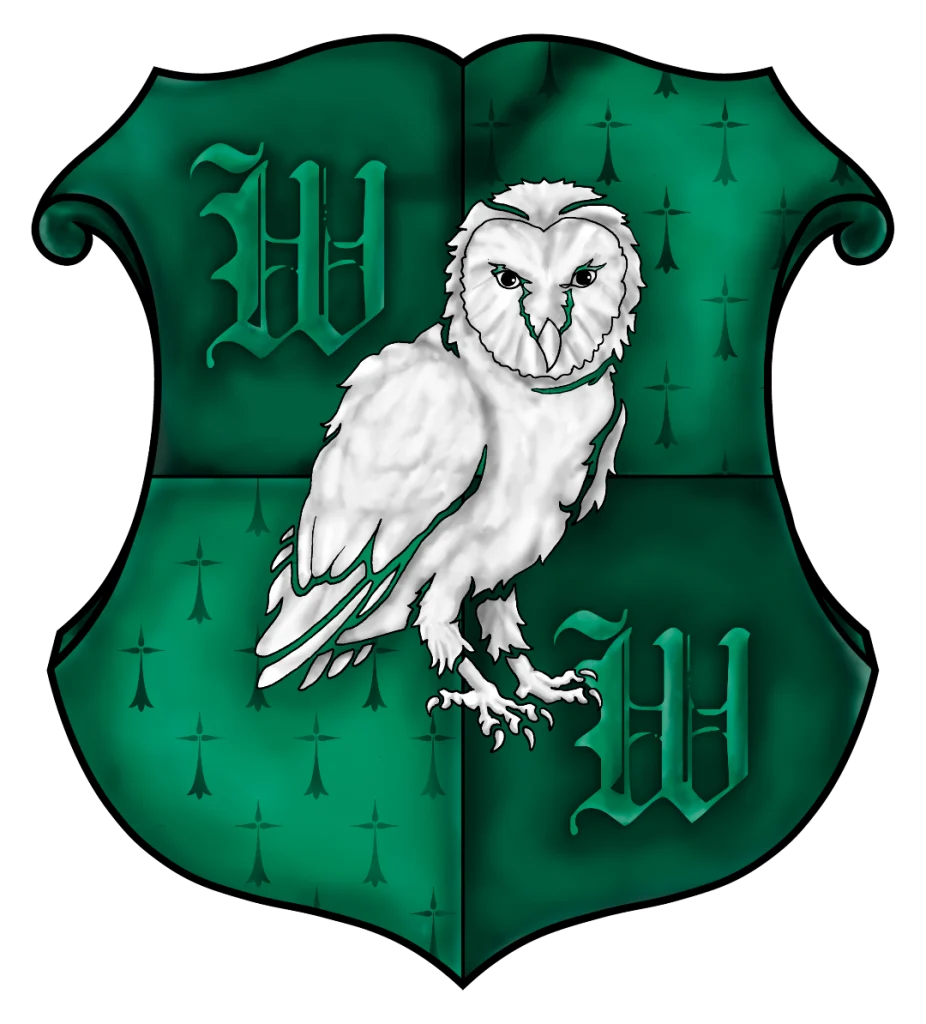
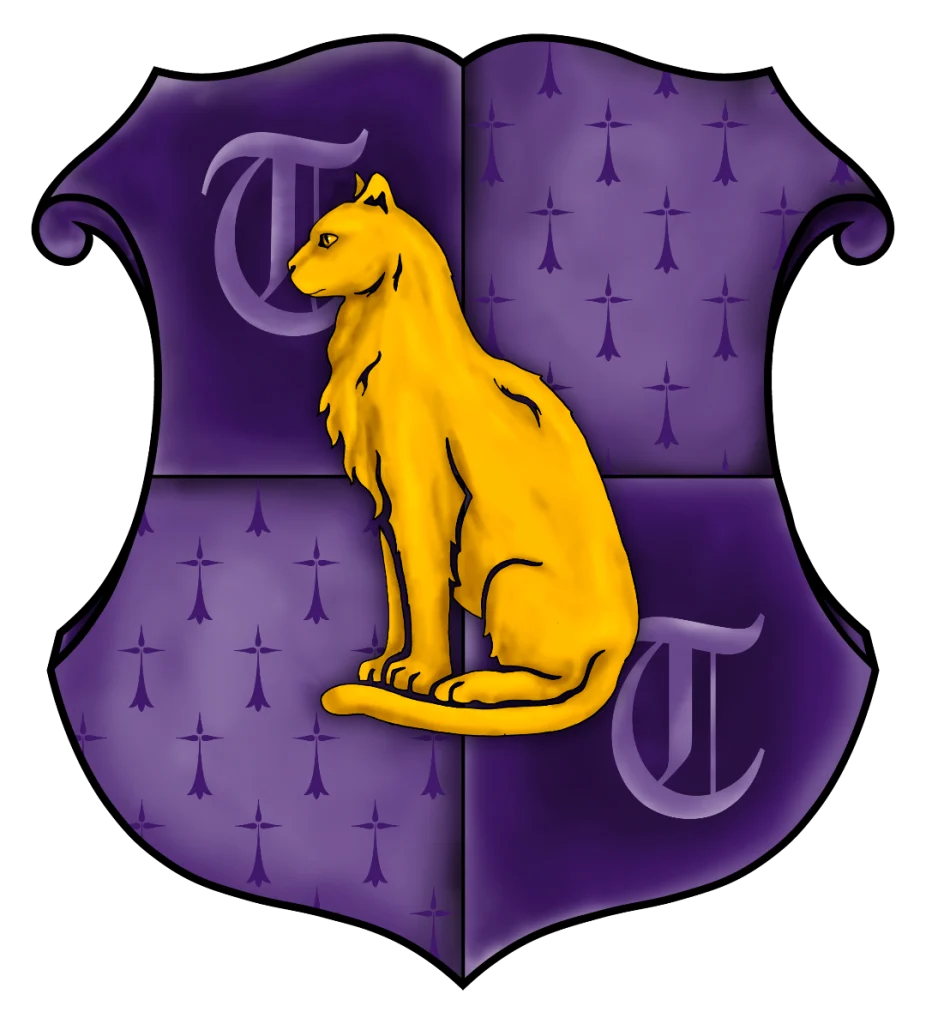
House Tabwen
Colours: Purple, Gold – Familiar: Cath Goed (Wood Cat)
Motto: Callidus (Cunning) – Founder: Olwenna Tabwen
Common Traits: Cunning, Charming, Sympathetic, Vengeful, Prideful, Supportive
Olwenna Tabwen was clearly a powerful witchard from a young age. While still a child her parents abandoned her deep in the woods of Cymru beside a lake for fear that she’d be lynched by the townsfolk, who were already suspicious of the strange happenings around Olwenna. There are many legends still today about “The Girl on Llyn y Fan Fach” or “The Lady on the Lake ” though none hold the complete truth of Tabwen’s experiences. It was through the whispers of spirits of the land that Tabwen came to know of Francis Stewart’s goals far before anyone else. She was the first ally that Stewart recruited and, as such, Tabwen’s ferocity and cunning ensured important allies were safeguarded. In the form of a black cat, she was the personal bodyguard to royalty, giving her a high position in court and council to the King and Queen. Though, as time marched onwards, Tabwen’s raw magical might was perceivable on sight by even the mundanes.
Members of House Tabwen can be quite relaxed about life (and the rules) and their innate ability to tell what someone’s thinking can make them a fine companion. Much like their founder, emotions tend to flow within them like the ripples on the surface of a lake.
The colours of House Tabwen, purple and gold, characterise Olwenna’s high regard with the crown using the colours associated with royalty.
The Faculty
Bothwell is led by a Triumvirate, three Heads of School who take on the task of the administration, enforcement of school rules, student admissions and the teaching curriculum. You can read more about the Triumvirate, and the process of casting of these roles, HERE. The teaching faculty of Bothwell consists of Professors, most of whom have an additional duty on top of teaching, such as a House Monitor, SchWiz student mentor, a Club or Society Monitor, or even something else we/you build into the game.
As varied as each House, subject, and student, faculty members come in all flavours: from strict and studious, to wild and haphazard. From reliving their glory days, to research practices deemed less than ethical by the governing board. One thing that is (usually) undisputed is their authority over the student body. Only faculty members can award or deduct house points, give out hall passes, or hand out detention slips. Furthermore, it goes without saying that their magical skills are far beyond those of their students.
To read more about the subjects that the Faculty can teach, see the Lessons section below.
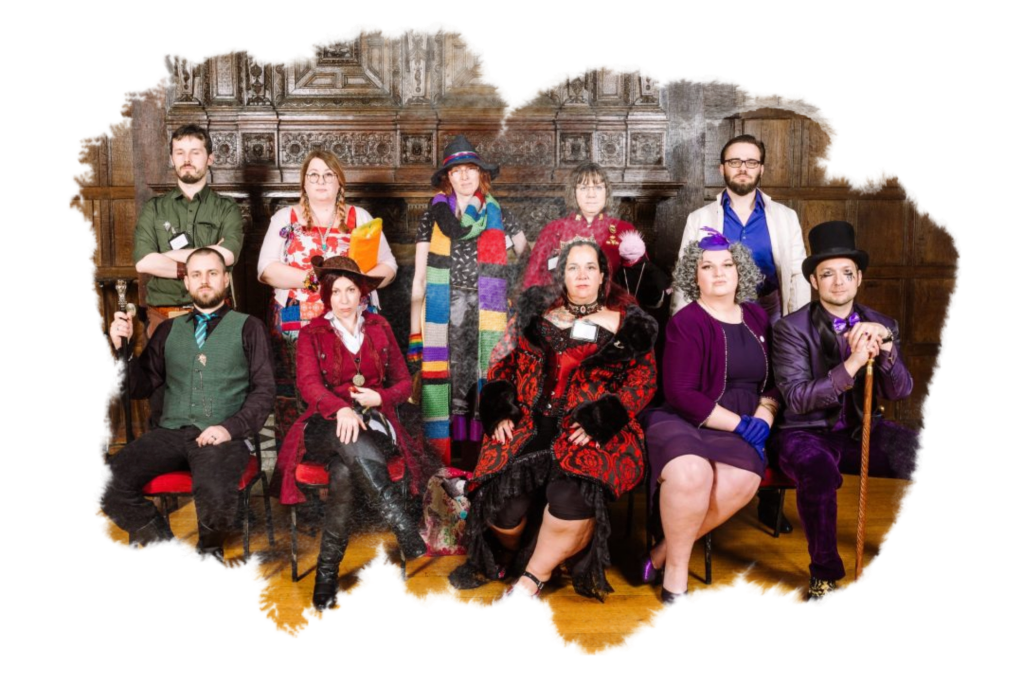
Scholar of Wizardry
Affectionately shortened to SchWiz, there are a handful of students at Bothwell studying for their Scholar of Wizardry title – the highest level of educational accolade in formal academia. A SchWiz is awarded to the best and brightest Witchards after they complete a rigorous research programme in their area of expertise to better the witching world with their findings. SchWiz students will have already completed their regular 3-year programme of study at a magical starter school, and may have attended other institutions as well to have furthered their knowledge before proceeding to enrol on this prestigious degree. Having the SchWiz letters after your name, especially awarded from the Bothwell School of Witchcraft Gold Ribbon programme, is the true mark of a magical intellectual. The mundane world has their own version of this programme which they call a PhD, or Doctorate.
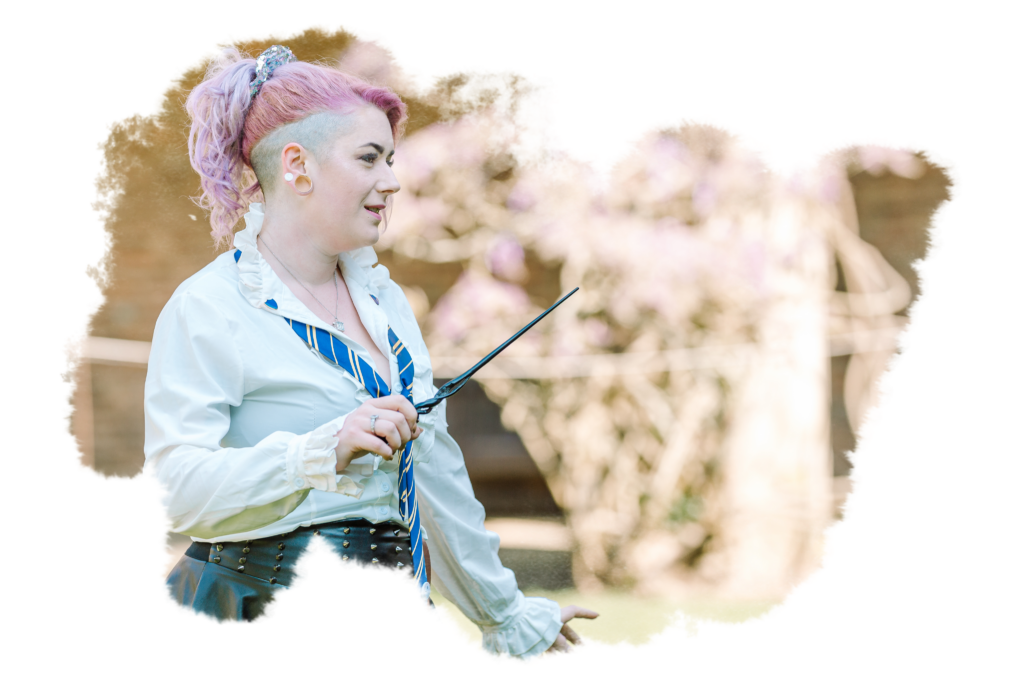
Lessons
Every student gets the opportunity to take part in all 8 of the lessons offered by the Faculty, so as to create a group of well-rounded graduates. Whether you’re a First, Second, or Third year, you’ll experience each class during the event, as well as getting the opportunity to play sports, have down time to catch up with homework, take part in an after-class club, or get up to mischief with your friends! The opening days of Bothwell will see you attending 8 of the 10 subjects below:
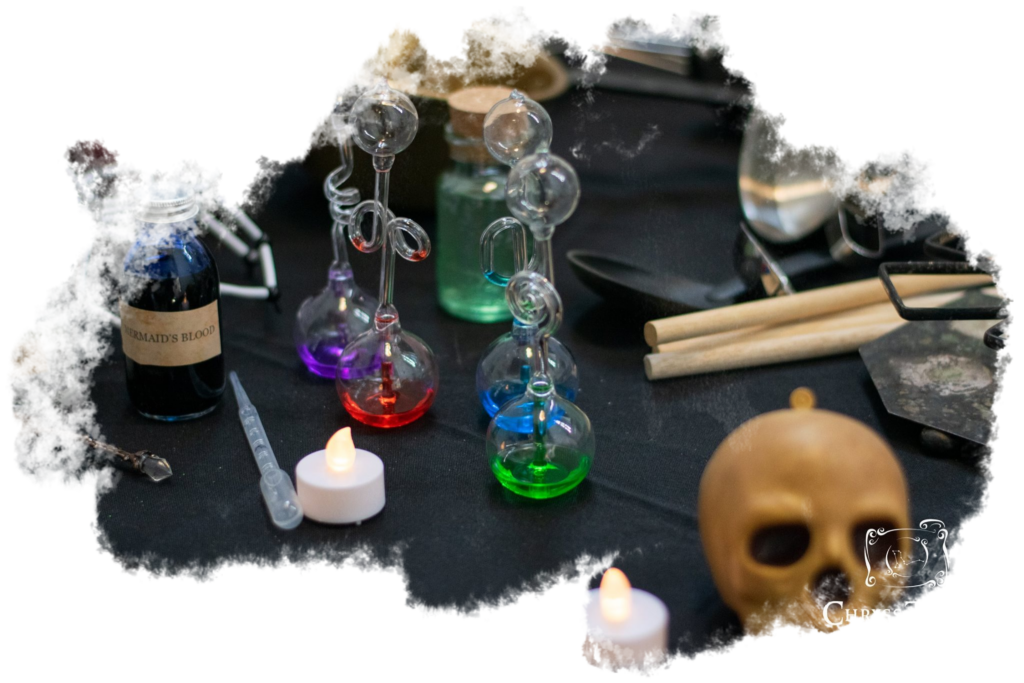
Alchemy
In Alchemy, students learn how to mix potions, brew elixirs, and learn about the magical properties of natural and non-natural ingredients.
These can range from disease-removing salves and concentration-boosting breakfast smoothies, to poisonous concoctions and tasty but deadly tonics.
Beastology
In Beastology, students learn how to identify, care for, and defend themselves from magical creatures and humanoids. This can be anything from hands-on-training in how to calm enraged minotaurs to learning how to seduce kelpies back into the water. Non-human Witchards have historically and unfairly been lumped in with Magical Beasts in outdated teaching practices, which the current administration does not tolerate – all sentient magical Witchards are equal in the sanctuary of Bothwell.
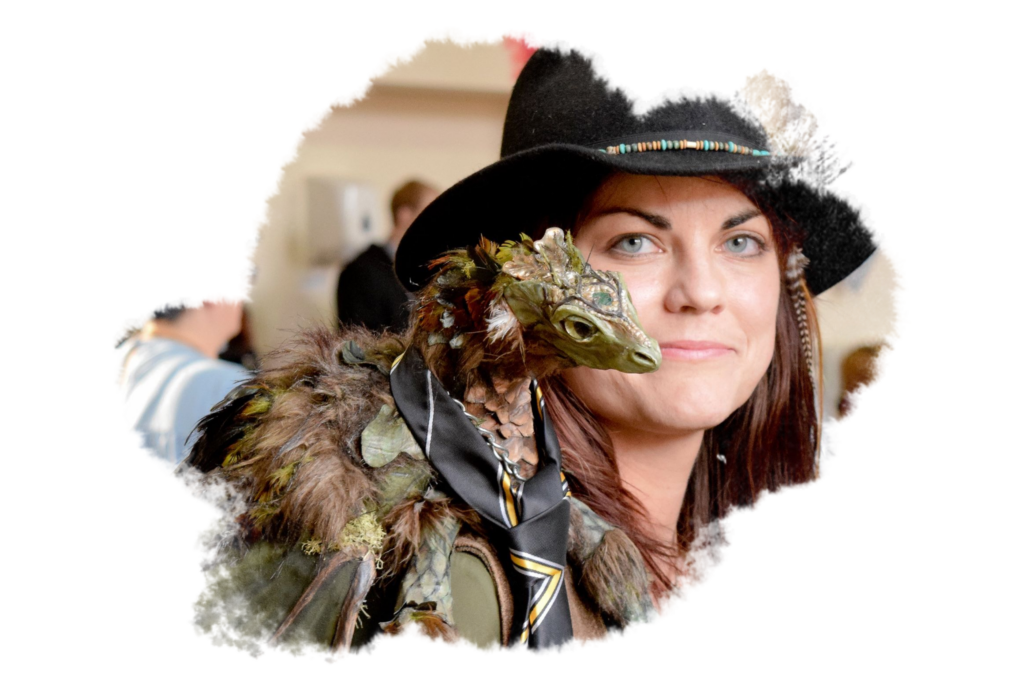
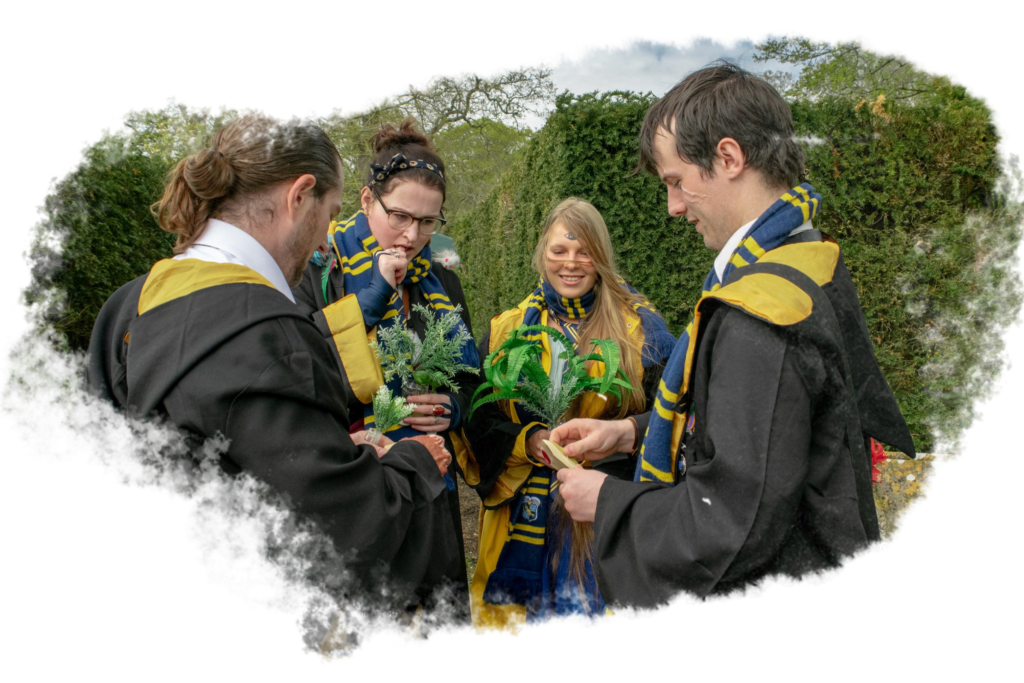
Herbology
In Herbology, students learn how to identify and use magical flora for arcane purposes. From healing magic all the way to defensive magic, natural magical plantlife is often necessary as ritual components and alchemical ingredients. Keep your wits about you though: Not all plant life is docile and easily wrangled…
History, Politics, & Ethics
This lesson is filled with vital knowledge on the geography, politics, economics, sociology and ethics behind the magical world.
Whilst usually the more classroom-based of the lessons, H.P.E can cover anything from international conflux relations, debating on the ethical treatment of Gnomes and their trade unions, learning about the cultures & confluxes of non-human magical Witchards, to practising for your Full UK Broomstick License.
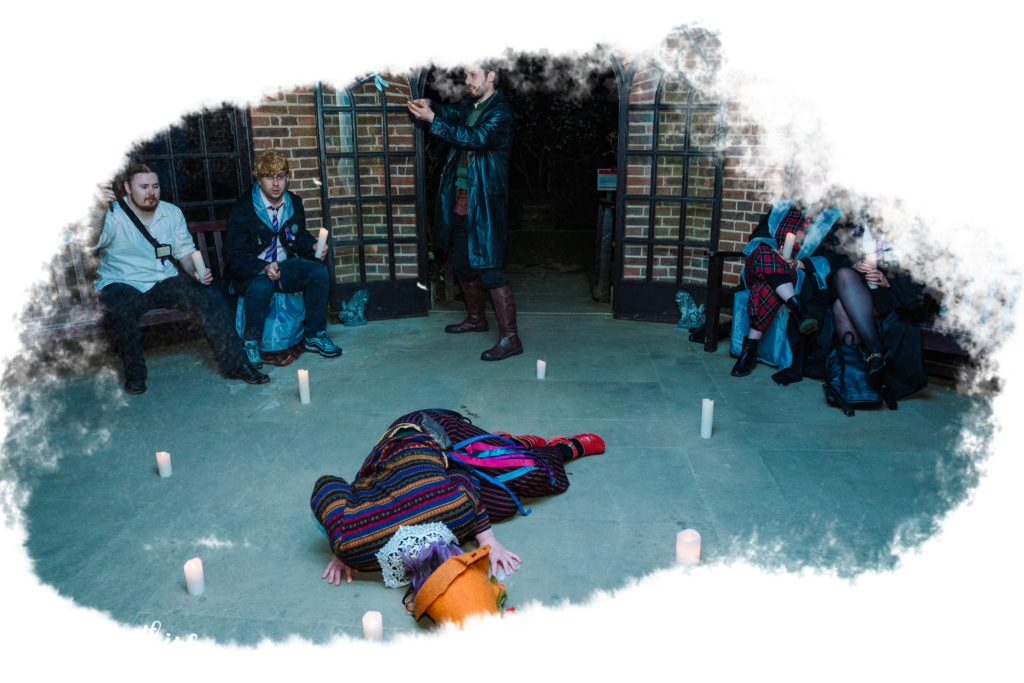
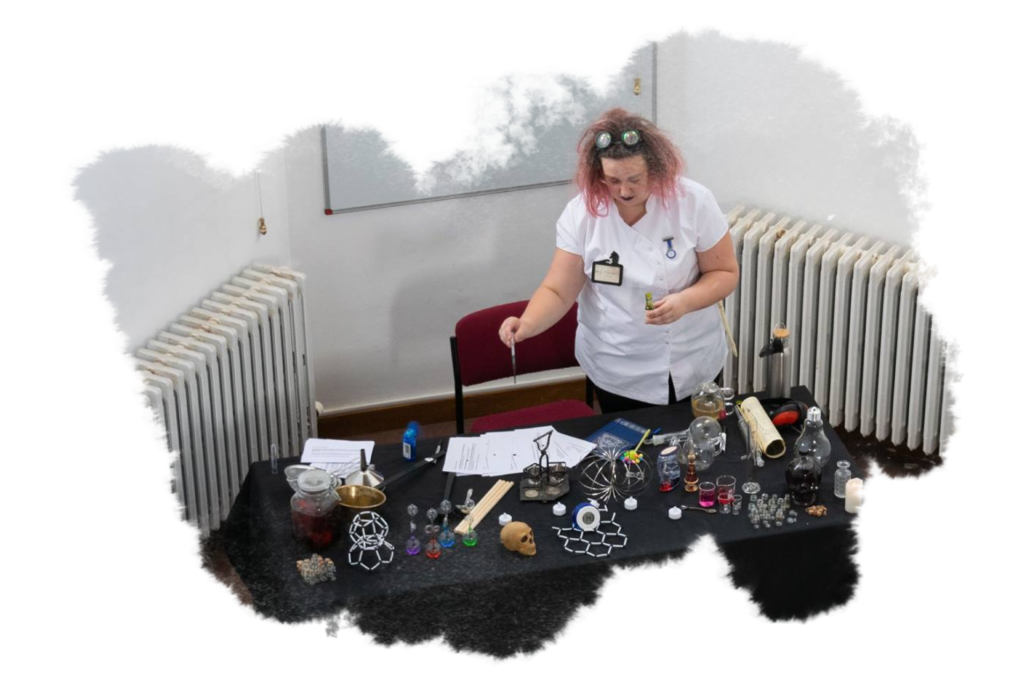
Magic Crafte
Using one’s own fair hands to delicately craft an object of magic is a skill honed through practise, dexterity, attention to detail, and finesse. Or sometimes you blow something up by accident and create a new magical element. Either way, in these lessons students will be harnessing the more practical sides of magic and always getting their hands, robes, and brains messy! From wand-making to artefact building, magical trace detectors to protective runes creation, and chronomancy blockers to the transfiguration of mundane artefacts, each student is in for a practical lesson that’s sure to see them animating the inanimate.
Occultism & Invocation
A controversial subject that plunges into the depths of other planes to explore all things otherworldly.
Whether it’s summoning infernal creatures to study and re-banish, invoking celestial powers to enhance healing magic, listening to the crashing waves of the Abyss, studying the history of the Occult, or harnessing the knowledge of spirits no longer walking this earth, you’re sure to learn that not all things in this world can be explained.
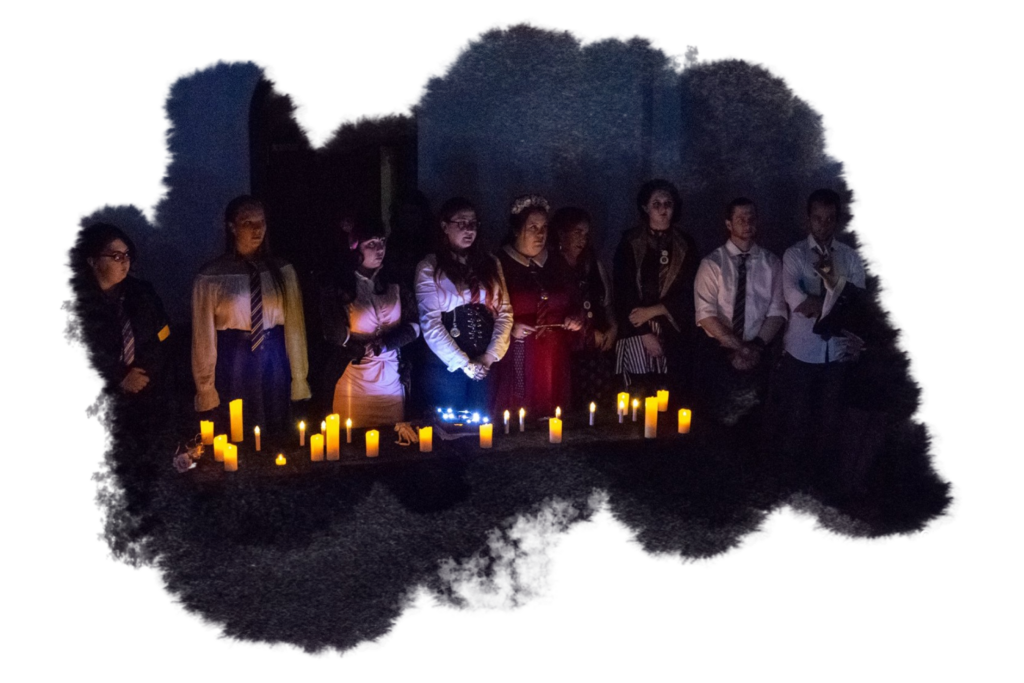
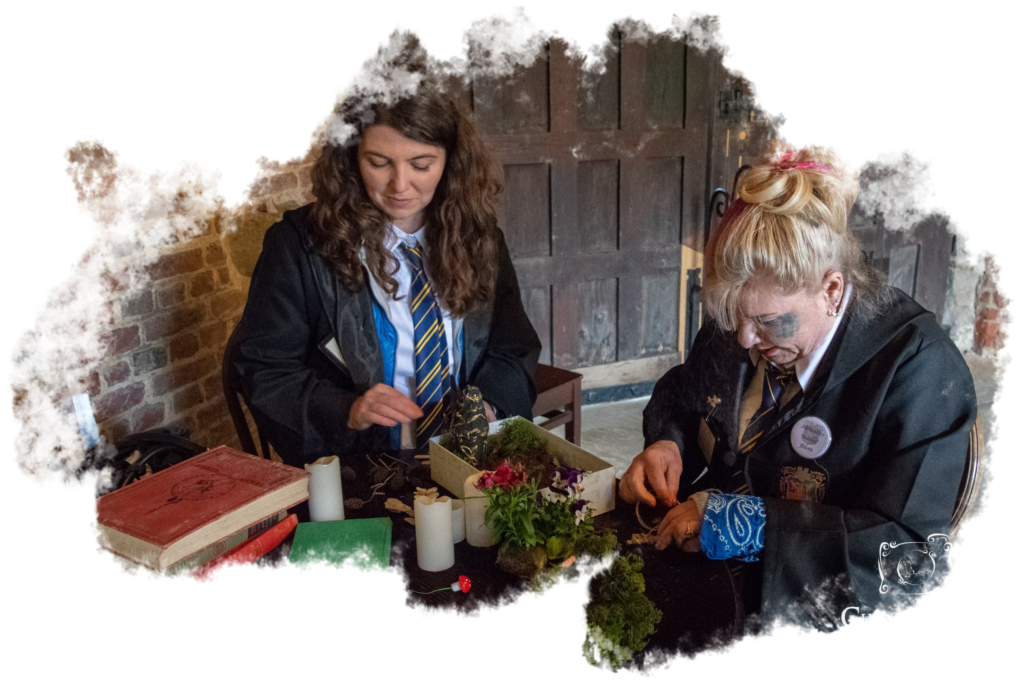
Practical Magic
Practical Magic teaches students the magic fundamentals. It can encompass basic domestic charms, transfiguration spells needed to help gain an entry-level position within the Guardianship, and the basics of harnessing nature’s magic when you’re stuck without your wand. The curriculum for this subject has been known to include physical education of well-known magical sports, combat and duelling practise, mock ethics trials, and ritual-based team work exercises to boost students’ knowledge of forestry or farming, to home economics or how to be a Pits Patrolman.
Doing just what it says on the tin, Practical Magic helps training witches practise the basics and become fully rounded members of magical society.
Prophetic Magic
Delving into the spiritual art of foresight, Prophetic Magic prepares students for their future by teaching them the many ways one can harness their internal Seer to predict magical outcomes.
Whilst it is a subject that divides witcharding society about its validity as a reliable magical art, one thing is for certain: what happens in these lessons you’ll never see coming!
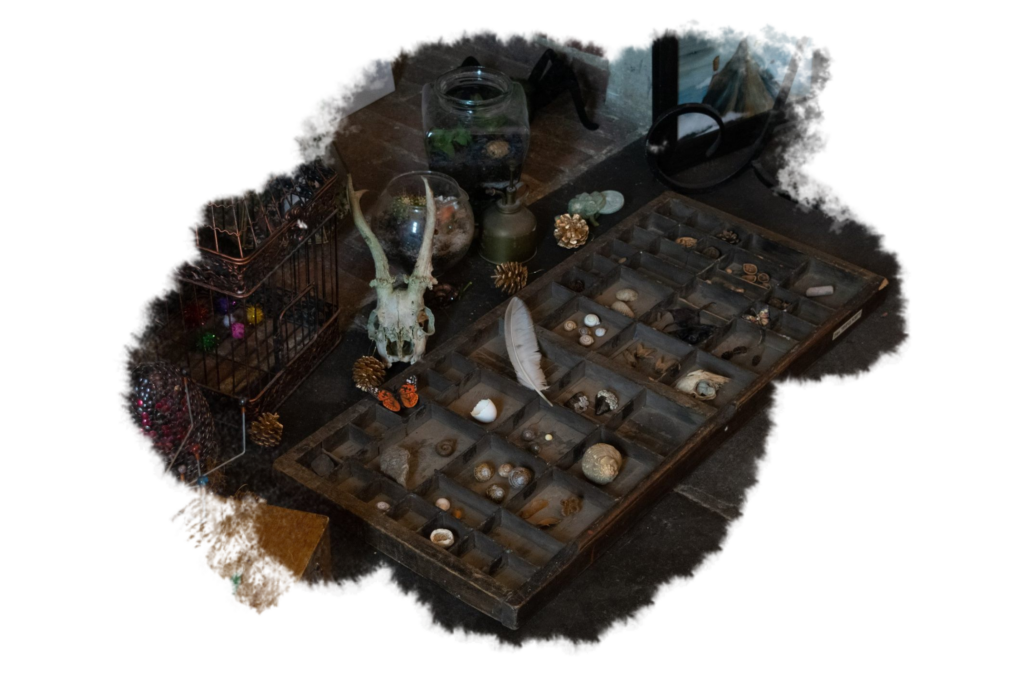
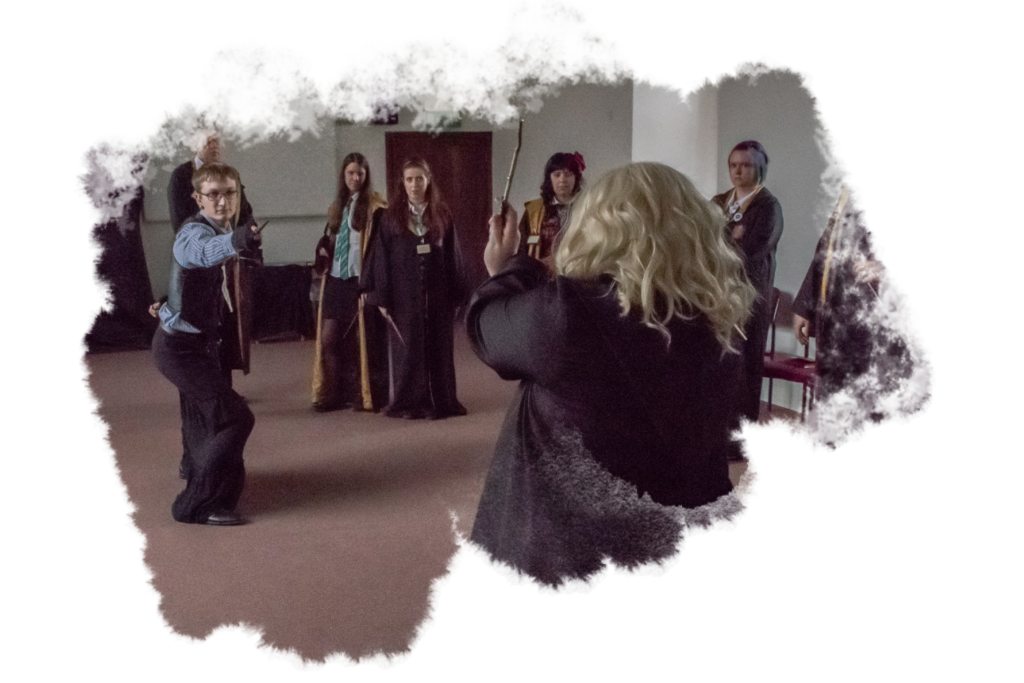
Protection Against the Bound Arts
Affectionately abbreviated to PABA, in this lesson students learn how to defend themselves and others against magical attacks, threats, and sometimes even from those they trust, with an emphasis on the Bound Arts.
Over the course of their studies, students will learn about the many different types of perilous situations a witch might find themselves in, including banishing necromantically raised opponents, building up resistance to mind magic manipulation, practising formal duelling, strategising wartime logistics, or building protective sanctuaries from chronomancy. The idea is to train in a safe environment, but often the word “safe” is put in quotation marks for these classes.
Thaumaturgy
Known by many as the art of ‘Wonder Working’, Thaumaturgy encompasses the many sciences of spellcraft to create magic where there once was none, and use material components to augment a witches’ natural magic.
By using runes, rituals, technology, or even mundane objects, a master Thaumaturge can command the weather, teleport at will, and make fire dance at their fingertips with nought but a pocket watch and glint in their eye. Whilst the use of a wand augments and channels all Witchards’ magic, Thaumaturgy is a branch of magic that, uniquely, can be completed without a wand, and thrives in experimentation and creativity in finding the best materials as vehicles for magical innovation.
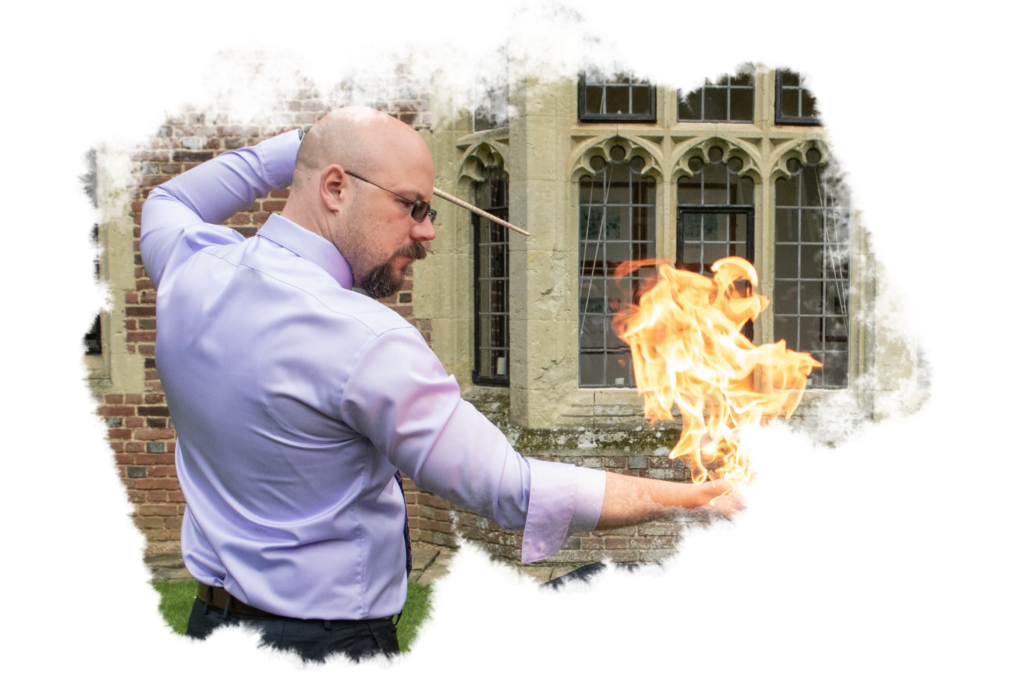
Life at Bothwell
There are many extra-curricular activities at Bothwell. Some of these are learning-based after school classes like assisting a teacher with their research, or a Prefect leading part of First-Year detention to get extra credit. Others are inter-House competitions, jobs fairs, research study groups, or even potion-pong practise!
Fireball Dragon
Fireball Dragon is the most popular sport of the European Confluxes. The non-initiated might call it “slightly more complicated dodgeball”, but in truth, it’s so much more than that: a beautiful game full of tactics and teamwork. Almost every Conflux has its own Fireball League, and Bothwell is no exception. The best players at school are followed by admiring looks and longing sighs wherever they go. Many might dream of becoming professional Fireball stars after graduation, but the competition is tough and only the absolute best can make it.
Fireball Dragon is usually played on both school days: first practise rounds, tactics drills, and a recap the rules for those who haven’t played for a while or at all, and the opening school competition on the next day. It is one of the best occasions to show House spirit, and many gather outside to support their own team, and maybe even have cheerleaders! Each House team needs a minimum of five members, and Houses are also awarded points for their outstanding performance on the Fireball field.
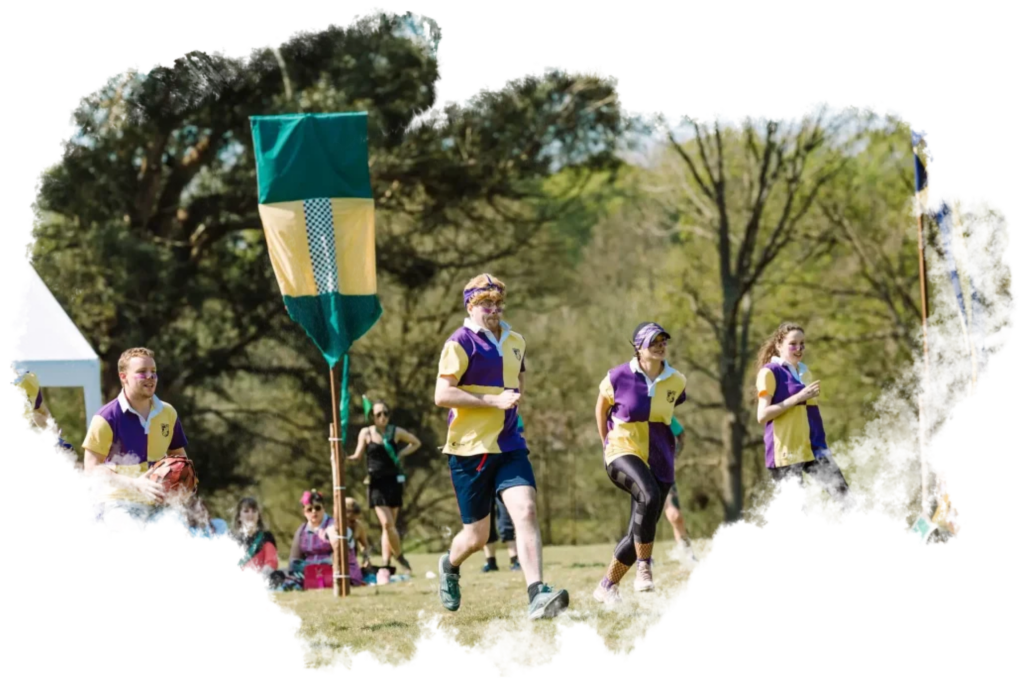
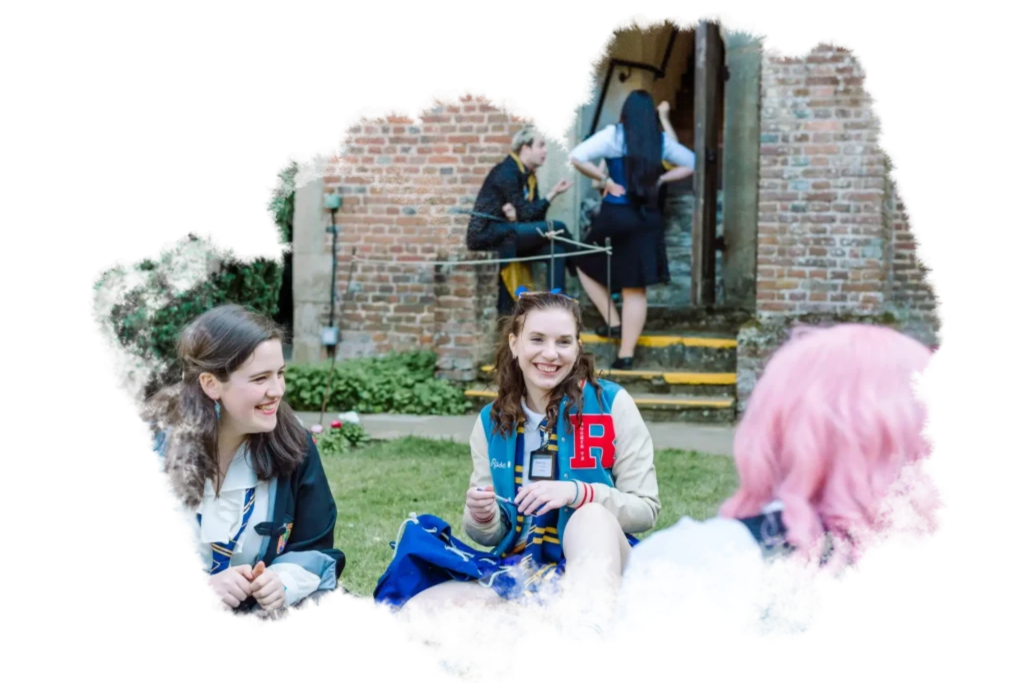
Clubs & Societies
Most lessons have a Club associated with them, where Professors and an entourage of subject enthusiasts lead midnight seances, twilight crocus-picking for the potion stores, or duelling practise which normally doesn’t adhere to the international duelling code. You’ll find there’s usually a sizable amount of secret activities too: either student-led shenanigans away from prying eyes, a meeting of like-minded individuals to discuss less than academic affairs, or even a gathering of people involved in an official but controversial society, meeting secretly as their particular proclivities wouldn’t exactly be sanctioned within the school walls… Even if you don’t take part in a formal after-school club, you’ll find that talking to a lonely ghost or the grumpy gardener may reveal a hint or task to perform to fill your evenings with wonder. That’s if the natural drama of boarding school hasn’t already kept you busy! Successful missions or performances in a club may result in house points, though being found out of bounds after curfew on an adventure will surely lose them! Either way, after-lesson frivolity with faculty, friends, or a frightening, furry beast will provide an unforgettable experience in your first days of term at Bothwell.
Read More
To find out more about the practical details and lore of our events, please have a look at our Player Handbook.
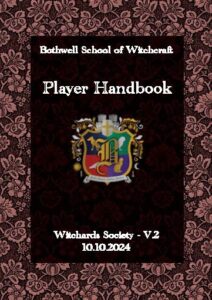
The Team
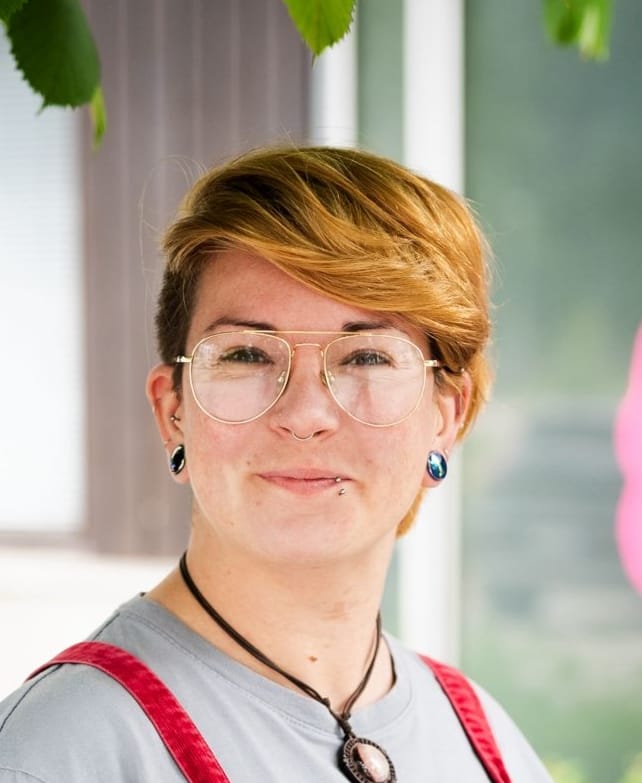
Pändi Baldwin
Lead Producer

Matt McHugh
Assistant Producer

Andrew Russell
Lead Designer
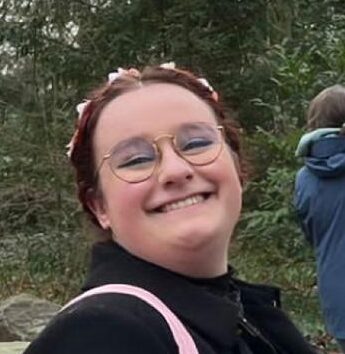
Marieke Swinkels
Story & Character Lead

Laura Sirola
Crew Coordinator

Mandala Studios
Scenography, Costume, SFX, & Storage
